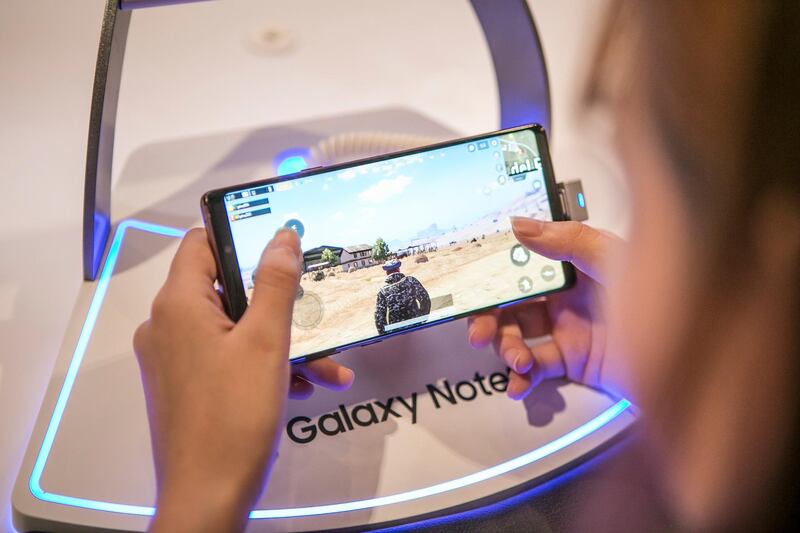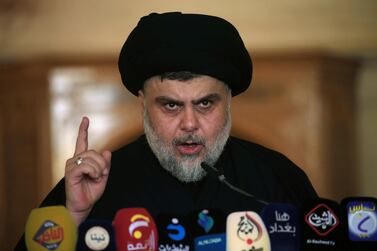Iraq is considering blocking online multiplayer computer games due to an increasing obsession that has triggered fears of violence, crime and a decline in society.
The cultural parliamentary committee submitted on Saturday a draft law that seeks to ban electronic games, in particular PlayerUnknown’s Battlegrounds (PUBG) and the Blue Whale that was reported to be an online “suicide game”.
“The committee is concerned about the obsession over these electronic games that ignite violence among children and youth. Its influence has spread rapidly among Iraq’s society,” the head of the committee, Sameaa Gullab, said during a press conference in Baghdad.
The request was submitted based on Article 59 of the constitution, she said.
Iraq’s 2005 constitution enshrines freedom of press and publication unless they “violate public order or morality.”
“We are proposing to parliament to block and ban all games that threaten social security, morality, education and all segments of Iraqi society,” Ms Gullab said.
Iraqi media reported incidents of suicide and divorce related to the games during the last year. In depth reporting by local media on the craze has announced it has led to nearly 40,000 divorces worldwide and more than 20 cases in Iraq.
“This issue requires immediate action by the authorities to ban this negative phenomenon through passing this draft legislation,” she said.
The draft law will now be revised by parliamentary speaker Mohammed Al Halbousi.
Iraq is facing a "youth bulge", a demographic term applied to countries where the vast majority of the population is young, according to the United Nations Population Fund (UNFPA).
Iraq’s young people makes up around 60 per cent of the country’s nearly 40 million population, and 17 per cent of men and 27 per cent of women are unemployed, according to World Bank figures.
PUBG has more than 400 million players across the world. It was developed by South Korean company Blue Hole and is based on a first-person shooter battle for survival format.
The game allegedly inspired an Iraqi teenager, 17, to commit suicide in January, Iraq's Independent Human Rights Commission said in a statement.
The boy's family said his death was a "wake up call for the dangers that Iraqi children are being exposed to".
The development comes after Iraqi populist cleric, Muqtada Al Sadr, called for tighter government control to combat the “addiction”.
“It saddens me to see our youth are brainwashed by PUBG,” Mr Al Sadr said on Twitter.
“Iraq’s society is deteriorating as its youth are occupied by the fighting in PUBG’s battlefields,” he stressed.
Numerous Fatwas have been issued across the county, saying that wasting time on the game is “un-Islamic”.
But teenagers in Baghdad consider playing the game as a way to keep them indoors and away from violence outside.
"I have been playing PUBG for sometime now, I like it because it keeps me at home and away from trouble outside," Hassan Ahmed Ali, 21, told The National.
Mr Ali says that parliament needs to consider a substitute for Iraqi youth to "keep us occupied".
PUBG is banned in Nepal and in the state of Gujarat in India over its association with violence.







